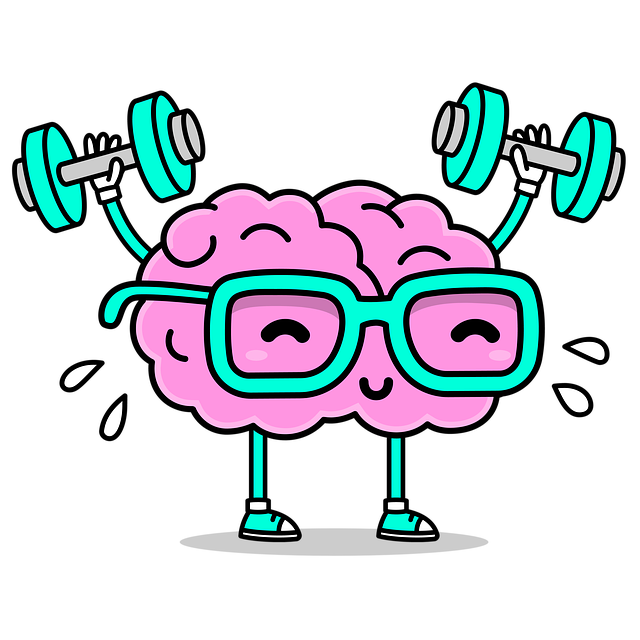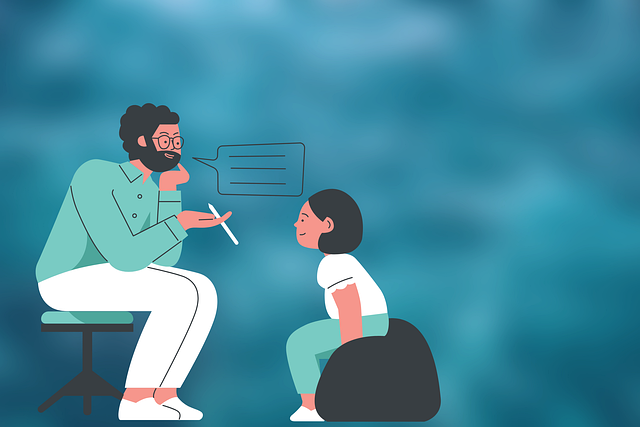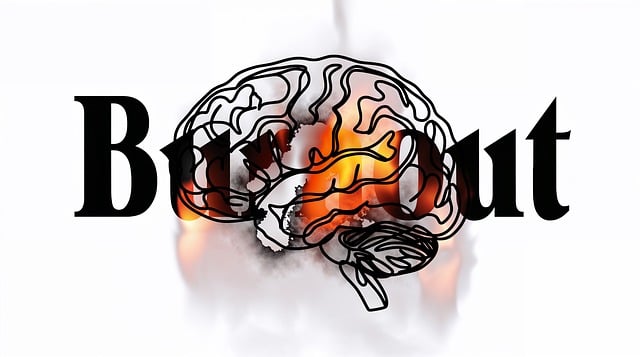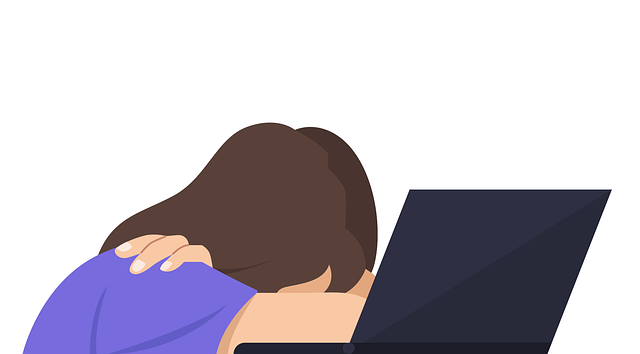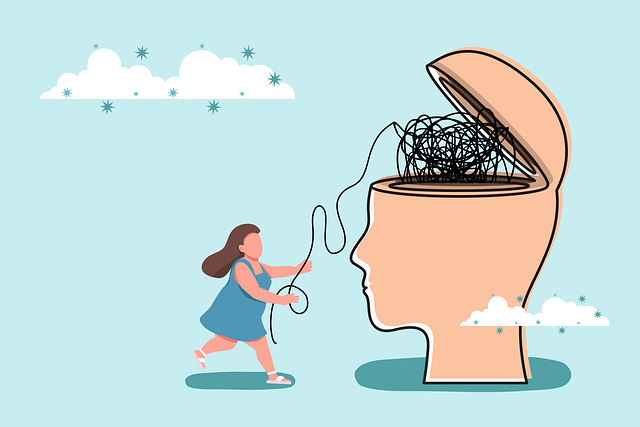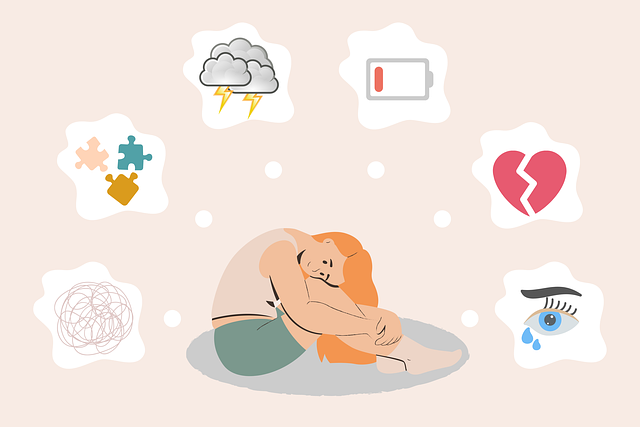Mindfulness meditation is a powerful tool for managing stress in professional settings, addressing Longmont workplace issues, and enhancing job stress therapy. By focusing on the present moment and observing thoughts without judgment, individuals can disrupt negative thought cycles and reduce physiological stress responses. Regular practice improves mental wellness coaching programs, enhances mental health awareness, promotes calmness, clarity, and coping abilities in challenging work environments. Incorporating mindfulness into daily routines through meditation and journaling exercises, with cultural sensitivity, offers significant benefits for healthcare providers and community outreach, ultimately leading to improved job satisfaction and overall well-being.
In today’s fast-paced world, managing stress and maintaining mental health at work is more challenging than ever. This article guides you through the transformative power of mindfulness meditation as a practical solution for Longmont workplace issues and job stress therapy. From understanding the basics of mindfulness to integrating it into daily routines, discover effective strategies for setting up a successful practice that enhances well-being and productivity in the workplace.
- Understanding Mindfulness Meditation for Stress Relief
- Identifying Workplace Issues and Their Impact on Mental Health
- Setting Up a Successful Mindfulness Practice at Work
- Techniques for Effective Mindful Meditation Sessions
- Integrating Mindfulness into Daily Routines for Long-Lasting Benefits
Understanding Mindfulness Meditation for Stress Relief

Mindfulness meditation is a powerful tool for managing and reducing stress in our daily lives, especially in navigating Longmont workplace issues and job stress therapy. It involves focusing your attention on the present moment and cultivating an awareness of your thoughts, feelings, and bodily sensations without judgment. By bringing your mind into the here and now, you can break free from repetitive negative thought patterns and reduce the physiological responses associated with stress.
Incorporating mindfulness meditation into your routine can improve mental wellness coaching programs development and enhance overall mental health awareness. It encourages a sense of calm and clarity, enabling individuals to better cope with challenging situations at work. Additionally, engaging in regular practice can provide valuable Mental Wellness Journaling Exercise Guidance, allowing you to reflect on your experiences and gain deeper insights into your stress triggers and coping mechanisms.
Identifying Workplace Issues and Their Impact on Mental Health

In today’s fast-paced work environment, Longmont workplace issues and job stress therapy have become increasingly relevant for maintaining mental health. High-pressure jobs, demanding deadlines, and complex interpersonal dynamics can take a significant toll on an individual’s well-being. These workplace challenges often lead to heightened stress levels, anxiety, and even depression, affecting not just the employee’s mental health but also their overall productivity and job satisfaction.
Mindfulness meditation has emerged as a powerful tool to combat these Longmont workplace issues. By fostering mind over matter principles, this practice enables individuals to develop a deeper sense of awareness and focus, helping them manage stress more effectively. Additionally, cultural sensitivity in mental healthcare practice plays a crucial role in understanding the unique challenges faced by diverse employees. Tailoring therapy approaches to accommodate different cultural backgrounds can create a safer and more supportive environment, enhancing the effectiveness of mindfulness meditation techniques.
Setting Up a Successful Mindfulness Practice at Work

In today’s fast-paced work environment, navigating Longmont workplace issues and job stress therapy has become increasingly important for maintaining mental wellness. Establishing a mindfulness meditation practice at work can be a game-changer in fostering resilience and boosting confidence. Start by allocating a quiet, designated space where you can sit comfortably without distractions. Set aside just 10–15 minutes during your lunch break or before you begin your day to practice. Consistency is key; aim to make it a daily ritual.
To enhance your mindfulness journey, consider combining meditation with mental wellness journaling exercises. This powerful combination allows you to reflect on your thoughts and emotions, track your progress, and build resilience over time. Begin each session by setting an intention—be it reducing stress, increasing focus, or cultivating gratitude. As you meditate, pay attention to your breath and bodily sensations without judgment. After your practice, take a few moments to jot down your experiences and observations in a journal. This reflective practice will support your mental wellness and provide valuable insights into your workplace challenges.
Techniques for Effective Mindful Meditation Sessions

Incorporating mindfulness meditation into your routine can be a powerful tool for managing Longmont workplace issues and job stress therapy. To achieve effective sessions, begin by finding a quiet space where you won’t be disturbed. Set a timer for a duration that suits your comfort level, whether it’s 10 minutes or an hour. Focus on your breath—notice the air entering and leaving your body. This simple act anchors you in the present moment, fostering self-awareness exercises that can significantly enhance your mental clarity.
As you breathe, observe your thoughts without judgment. When your mind wanders, gently bring it back to your breath. This practice strengthens your ability to stay focused and cultivates mind over matter principles, enabling better stress reduction methods. Over time, you’ll find yourself more equipped to handle workplace challenges with a calmer mindset, leading to improved job satisfaction and overall well-being.
Integrating Mindfulness into Daily Routines for Long-Lasting Benefits

Integrating mindfulness into daily routines can unlock profound benefits that extend far beyond fleeting moments of calm. In today’s fast-paced world, where Burnout Prevention Strategies for Healthcare Providers are increasingly relevant, mindful practices offer a powerful tool to navigate Longmont Workplace Issues and Job Stress Therapy. By incorporating simple techniques like conscious breathing or body scans during everyday activities, individuals can cultivate a deeper sense of presence and resilience. This consistent practice strengthens one’s ability to manage stress, enhancing overall well-being.
Mindfulness becomes an anchor in one’s life, allowing for better coping mechanisms and improved mental clarity. For healthcare providers, this could mean more effective patient care and enhanced job satisfaction, even in challenging settings. Community Outreach Program Implementation can also benefit from mindfulness, fostering connections and promoting Mind Over Matter Principles as a means to build stronger, healthier communities.
Mindfulness meditation, as explored in this guide, offers a powerful tool for navigating Longmont workplace issues and managing job stress. By integrating practices such as identifying mental health impacts, setting up dedicated mindfulness spaces at work, employing effective techniques during sessions, and seamlessly incorporating mindfulness into daily routines, individuals can experience significant improvements in their mental well-being. Embrace these strategies to transform your work environment into a sanctuary for relaxation and productivity, fostering a healthier, more balanced lifestyle.

